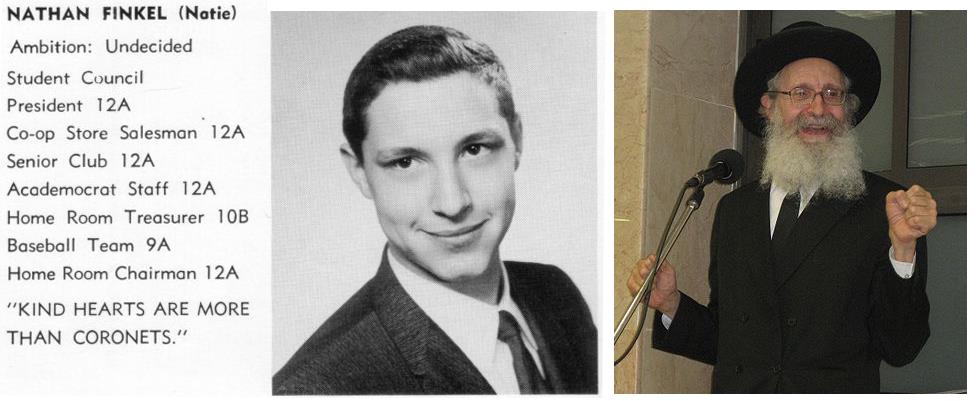Not many will doubt that religion has taken the back seat in regards to our modern day youth, not to mention the collective societal consciousness. This view is one that I myself have not been foreign to. Religion is often portrayed as the stumbling block between regress and progress, primitive and modern, irrationality and intellectualism, love and hate. With certainty I can say that many of these claims contain some validity to them. However, I would like to argue that there are 2 primary reasons why religion is viewed as such. The first being the hypocrisy of many ‘religious’ individuals who deceive, hurt and malign a fellow human being in the holy name of G-d. The second being the lack of/mis-education of the secular world (which bleeds ignorance).
An uneducated individual who witnesses a desecration of G-d’s name in the name of G-d, not being able to distinguish between the good and the bad, the truth and false hood, is certainly doomed to the religious phony. Therefore, the combination of religious hypocrisy and the uneducated child is a recipe for disaster. Being someone who has swam in the ocean of secularism and later dove in the pit of religiosity, the current situation is deeply unfortunate, harmful to the human personality, and extremely unauthentic. I will attempt to demonstrate why this is so and hopefully enlighten the curious souls in search of their Divine heritage.
No doubt that the most influential religious figure who has walked our earth is none other than the father of the monotheist creed, Abraham. A man who has forever changed the course of humanity. A man whose story is a particular example of the journey of souls in a climate of hostility. His life is an example of a man who walked through the valley of the shadow of death and triumphed with dignity.The first introduction to my forefather is in the book of Genesis where at the age of 75, he is told by the Mysterious Other to leave his land, his relatives and his fathers house hold and become a wanderer on earth. Leaving your comfortable surroundings is no easy task. Many will shun the opportunity to leave their birth place to become a stranger. However, Abraham did. But this was only the beginning. The lonely stranger encountered many hardships that frighten and attack the depths of the human soul.
Throughout his wanderings, his wife is taken by a prominent king, he fought wars with a multitude of kings to save his nephew, he is promised to have a child in and old age, he is commanded to circumcise himself at the age of 99, he is told to send away his first son, he is commanded to sacrifice his second son, the one whom he deeply loves, his wife later dies, he mourns for her and buries her. There is much more to his story that will not be mentioned, but the message is clear: Here is a man whose life was filled with contradictions, challenge, hardship and suffering. Yet, he always remained close to his G-d. He was and remained deeply religious.
Religion is meant to be a constant encounter with the Divine. Religion is a system of living that addresses the totality of Man. His intellect, his emotions, his dreams, his sexuality, his personality, his joys, his sorrows, his victories and failures. An authentic religion wouldn’t dare deny the human personality. A human being is a complex entity, a religious philosophy should not only be aware of this complexity, it should embrace it, and allow the human personality to share his whole self with G-d. Your dreams, hopes, personality, and life should be sanctified, made special and unique. In a sense, religion is an authentic expression of the self.
The story of Abraham makes this point clear. His whole life was sanctified to G-d. He went to war to prevent an injustice, he circumcised himself not to deny his sexuality, but to sanctify it, he argued with his G-d to practice justice and he fed strangers because he realized the importance of kindness. Life was constantly challenging him. But he confidently demonstrated that regardless of which challenge my come his way, he will walk with his G-d, he will be a living embodiment of the Divine. However, it wasn’t an easy task. Nevertheless, his will to live was stronger than the kiss of death. So much so that G-d had become aware of him. Not only is G-d aware of him, G-d has an immense love for him.
Genesis 18:19 – For I have known/loved him, because he commands his children and his household after him that they guard the path of the Eternal G-d, doing charity and justice.
Judaism, being the living testimony of Abraham, recognizes his calling to life. Judaism doesn’t surrender Man to the absurdity of evil, the horror of suffering and the darkness of fate. Judaism declares that Man make himself holy, redeem his life, face the challenges, and make yourself known to G-d and allow G-d to be known in all of your life.
Man’s task in the world, according to Judaism, is to transform fate into destiny; a passive existence into an active existence; an existence of compulsion, perplexity, and muteness into an existence replete with a powerful will, with resourcefulness, daring, and imagination. -Fate & Destiny, pg. 6, by Rabbi Joseph B. Soloveitchik




